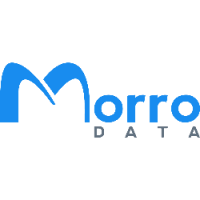Secure Remote File Access: Keeping Your Files Safe in Cloud
Secure Remote File Access: How to Keep Your Files Safe in Cloud
With the growing trend of remote work, remote file access has become a crucial aspect of business operations. From the convenience of work-from-home to the flexibility of accessing files from anywhere in the world, remote file access has revolutionized the way we work. However, this convenience also comes with a price: security risks. Imagine a scenario where a hacker gains access to your company’s confidential files, such as confidential customer information and other critical business-related information. The consequences can be dire, ranging from loss of reputation, legal issues, and financial losses, to potential business closure. These are not just theoretical risks – according to a recent study by IBM, the average cost of a data breach in the United States was a staggering $9.44 million in 2022. To avoid such scenarios, businesses must understand the vulnerabilities of remote file access. For example, hackers can intercept communication between remote employees and the cloud server, gaining access to confidential information. Lost or stolen devices, weak passwords, and outdated software can also pose risks to remote file access. Therefore, understanding the potential vulnerabilities of remote file access, the aftermath of a security breach, and the various levels of cloud security is crucial for businesses to ensure their files remain safe and secure in the cloud.
Understanding the Risks of Remote File Access
Remote file access involves accessing files stored in the cloud from a remote location. While this convenience allows employees to work from anywhere, it also exposes businesses to several security risks.
- Malware or viruses: The act of remotely accessing files can open up the possibility of malware or viruses infecting the system, which could result in the loss of data or compromise of the entire system.
- Data breaches: Hackers may intercept communication channels between remote employees and the cloud file server, allowing them to access sensitive data.
- Outdated software: If remote devices or file servers are not updated regularly, vulnerabilities can be exploited by hackers to gain access to sensitive data.
- Third-party risks: Third-party cloud service providers may not have adequate security measures in place, posing a risk to remote file access.
- Human error: Improper handling of critical data or lack of employee education and training on security.
Additionally, lost or stolen devices and weak passwords can all pose risks to remote file access. Understanding these vulnerabilities is the first step to enhancing the security of remote file access.
Potential Consequences of a Security Breach
A security breach can have significant consequences for businesses, including loss of reputation, legal issues, financial losses, and the theft of sensitive information. In severe cases, it can lead to business closure.
What Is Server Message Block (SMB) Protocol?
Developed from the Common Internet File Sharing (CIFS) protocol, the Server Message Block (SMB) protocol is a network file-sharing protocol. SMB allows applications on a computer to read files and request services from server programs. Like some network drives (NAS), Morro Data CloudNAS supports SMB protocol working with Windows, Mac, and Linux clients to access data.
Hybrid Cloud NAS Solutions for Enhanced Security
Morro Data CloudNAS is a cloud-based file storage solution providing secure remote file access. With CloudNAS, the business can store and access your files securely in the cloud, using features such as Multi-Factor Authentication (MFA) and user permission control for files and gateways.
Monitoring and Auditing Your Cloud Storage Security
Ongoing monitoring and auditing of cloud storage security are essential to detect potential security breaches. Morro Audit analytics and reports provide alerts on unusual bulk operations and enable quick action to mitigate risks.
